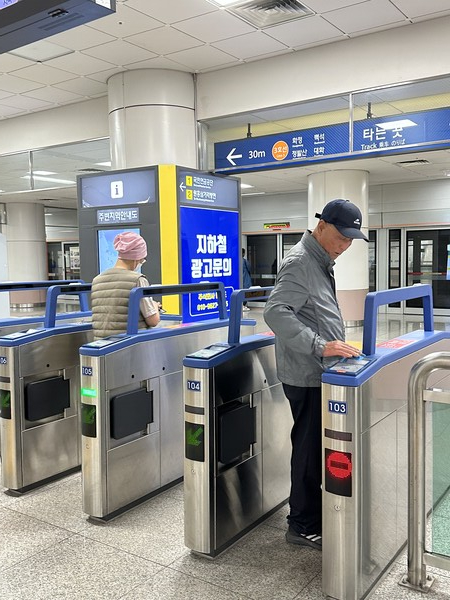
On February 16, Oh Se-hoon, the mayor of Seoul, made a statement at the “Policy Debate on Free Legal Services for Senior Citizens” held at the National Assembly Building in Yeouido, Seoul. He insisted that the Seoul Metroʼs financial deficit is worsening owing to free rides for those over 65 on the nation’s subways. Jin Sung-joon, a member of the Democratic Party of Korea, also stated that the total loss incurred over the past five years caused by the free-ride system amounted to a whopping 27.696 trillion won based on “Loss Status Data Due to Free Legal Services” from six national transportation corporations. Hong Joon-pyo, the mayor of Daegu, has also proposed raising the free-ride qualification age to 70. This highlights the need for change regarding free rides for seniors in the political sphere.
The free ride policy for the transportation vulnerable is a welfare system first introduced in 1984 under the direction of former President Chun Doo-hwan. Initially, it applied to seniors aged 65 and above, but has gradually expanded to include disabled individuals and men of national merit. As per Article 26 of the Welfare of Senior Citizens Act, the national or local government should provide free or discounted access to public facilities for senior citizens determined by the president. However, there is no legal basis for the government to cover the costs. Hence, urban railway corporations, such as the Seoul Metropolitan Rapid Transit Corporation, are currently bearing the losses. The main concern is that the loss will increase even further as the population continues to age while the birth rate declines. Currently, more than 16 percent of the population are elderly citizens, and this will reach 38 percent by 2047. Jin has pointed out that with the increase in the elderly population, such losses are likely to increase from 9 trillion won to 12 trillion won by 2040. Among developed countries, not many allow fully-funded rides that support elderly citizens like South Korea. The United Kingdom does not allow free rides for elderly citizens during peak commuting hours, while France benefits only those below a certain income level. Luxembourg provides a 50 percent discount, and Japan issues free ride tickets only to the elderly who have surrendered their driverʼs licenses. On the other hand, the disappearance of free rides for elderly citizens may become a concern for the younger generation. As the aging society approaches, the generation in which one young person is required to support one elderly is forthcoming. The youth will have to pay double for pensions and insurance premiums, but may no longer receive the benefits themselves when they become the elderly. Therefore, in-depth examination seem necessary for the system.

